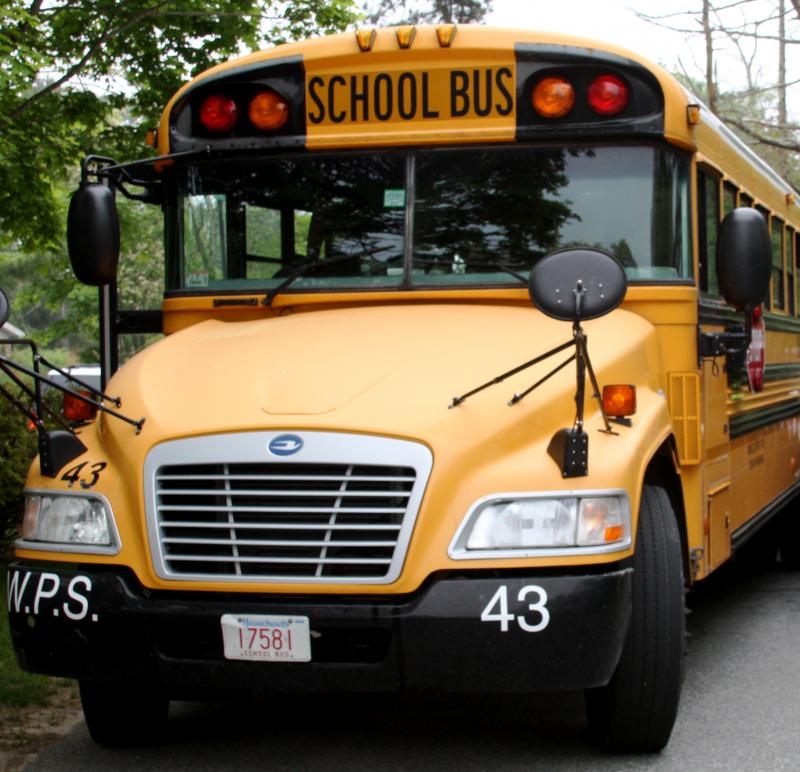School Committee, parents discuss transportation needs
The safety of students who walk to school and whether the school district should charge for busing were among the topics on parents' minds as the School Committee presented three possible futures for its Transportation Department on Wednesday, Jan. 9.
The Transportation Action Committee, which is charged with determining the safest, most cost-effective way to transport the district's students, recently put four proposals out to bid to determine the costs of each if a private company were to provide the services, rather than the in-house Transportation Department.
The proposals are:
- To keep all transportation at the current level of service
- To transport only kindergarten through grade 8
- To transport only the students who the district is legally required to transport: Kindergarten through grade 6 students who live more than two miles from their school, plus special education students as required by law
- A "hybrid" plan in which only regular transportation would be done by an outside vendor. Wareham would continue to transport the special needs and homeless population, and do bus runs for field trips and athletics
"We don't have sidewalks in many of our neighborhoods, so for me, this is a huge safety factor," parent Holly King said of expanding the area in which students would be required to walk to school.
That concern was echoed by other parents, and School Committee members alike.
"My mindset is, we've got two obligations. To educate our children the best we can, and to transport them safely," said School Committee member Cliff Sylvia. "Go out there and look at the snowbanks. These kids are forced to walk on the street."
Superintendent Dr. Barry Rabinovitch noted: "No one on the school administration or the transportation manager believes that we should do anything less than we already do."
The problem, of course, is cost.
Parents wondered if charging students to ride could be a solution to the problem.
Rabinovitch painted a picture of Wareham's demographics that made the idea seem unlikely.
"We currently have 54% of our student body that is on free or reduced lunch. We cannot charge, by law, we cannot charge those families" for busing, Rabinovitch explained. "If you have 50% of the population left, 20% is special needs. I cannot charge" those families, either.
What's left?
"The small minority of people who are the working poor," Rabinovitch said, adding that the district calculated approximately how much money could be brought in through charging for transportation services, and determined it was $30,000 to $50,000 per year.
"That's half [the cost] of a bus. It really does not pay," Rabinovitch said. "And who are we asking to make that payment? Mostly, people who can't afford it."
The School Department is asking for $1.6 million to run the Transportation Department next year. It received $1.4 million last year, but was unable to purchase any new buses -- which is much-needed.
The School Committee said it would discuss both charging and other ideas presented, including the possibility of leasing buses instead of buying them. Rabinovitch said he'd ask the Transportation Action Committee to discuss the latter topic at its next meeting.
The final decision will be a difficult one.
"You've got a School Committee I think I can safely say that finds anything other than [current service] as unacceptable for safety reasons, attendance reasons," said School Committee Chair Geoff Swett.
But, Swett cautioned, the choice will ultimately be left to Town Meeting voters, who must OK the town's budget. If Town Meeting votes not to give the Transportation Department the $1.6 million to bus as it has been, the School Committee will have to come up with another plan.
"We can't run a deficit. ... We [would] have to come up with another option because that's all the town says they're willing to give us to run the Transportation Department," Swett explained. "That's a cold, hard reality."
The School Committee will next discuss transportation at its Jan. 30 meeting.












